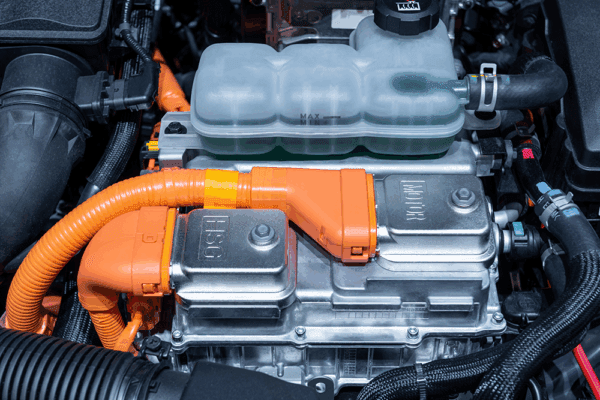
The Importance of Mechanical Properties in Detectable Polymers
Radical Materials explores the importance of mechanical properties in products manufactured with detectable polymers and sheds some light on how SCOPIC additives can help mitigate the issues surrounding them.
The sole purpose of detectable polymers is such that, should a fragment break off from a component on a food production line and create a foreign body contaminant in the food product, this contaminant is detected and the food product removed from the line before entering the consumer chain. Such detection is typically achieved by metal detectors and/or X-ray systems.
‘Standard’ polymers are, at best, very difficult and, at worst, impossible to detect within food products using conventional detection systems. In order to improve this level of detectability, it is necessary to incorporate very specific additives into the polymer in question. The drawback here is that these additives invariably reduce the toughness of the base polymer and so, even though now detectable, actually increase the risk of fragments breaking off in the first place.
Over the years, Radical Materials, via the SCOPIC brand, have worked extensively to offer standard polymer masterbatch and compound solutions that help alleviate such problems by utilising techniques to increase the toughness of the final polymer material. The detectable additives now utilised have been developed to offer extremely high levels of detectability, hence meaning that lower addition levels can be utilised than other, less detectable additives that are available. In addition, much work has been focussed on the use of impact modification systems specific to individual polymers.
As well as these standard SCOPIC solutions, full support is available to assist in developing and testing custom formulations to suit a specific application. Compounds/masterbatches are firstly developed on in-house lab extruders. These can then very quickly be injection moulded and tested for tensile strength, elongation and impact performance and modifications subsequently made if and as required. It is even feasible to expose the material to similar environmental conditions that it would be subject to on a production line prior to testing. With an increasing focus on UV-C sterilisation within the food industry, such conditioning can now even include studies into how exposure to specific UV-C cycles affects polymer/component performance.
If you’d like to learn more about how SCOPIC can help you solve your X-ray and metal detectable challenges, visit www.scopic.com or use the contact details listed below to get in touch with the team.
Radical Materials is home to SteriTouch antimicrobial, SCOPIC detectable, and KONDUCT thermal polymers.
Three brands, one RADICAL vision.

Radical Materials
01495 211400
Website
Email





